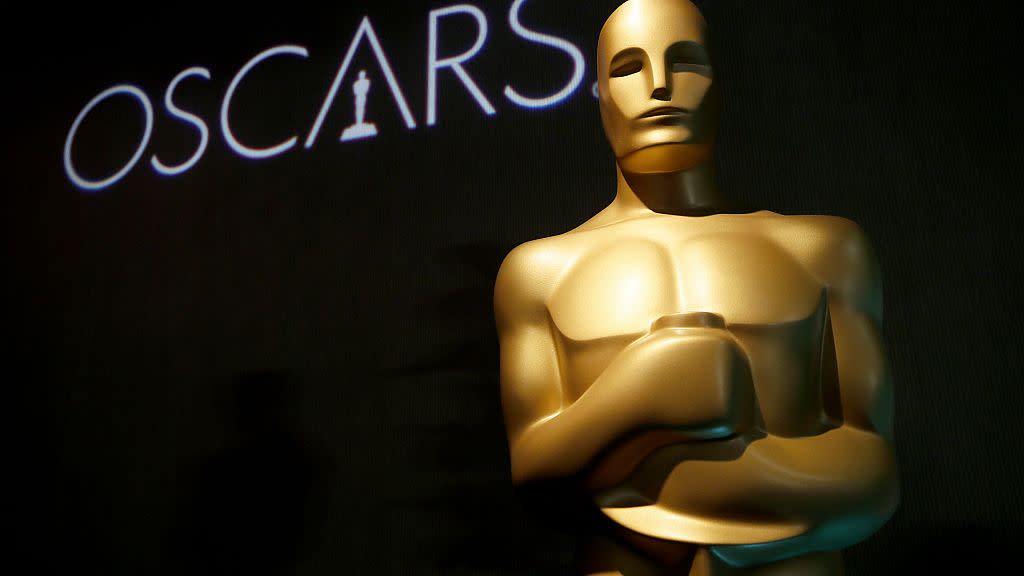Are the Oscars going to introduce gender-neutral categories?

Gender-neutral acting categories for award shows have been gaining popularity over the years.
In 2012, the Grammys removed gendered categories, allowing men and women to compete against each other for all awards, under titles like “Best Perfromer”.
Other awards shows have axed their gendered categories to champion inclusivity, like the MTV Movie & TV Awards, Independent Spirit Awards, Gotham Awards, and BRIT Awards, who introduced gender neutral awards to be "even more inclusive, recognising exceptional work rather than how artists identify.”
Now, in a bid to be more inclusive to gender non-conforming performers, there have been renewed calls for the Oscars to introduce gender-neutral awards, merging male and female shortlists into singular Best Actor and Best Supporting Actor categories.
Currently, the Academy Awards’ acting awards are separated into male (Best Actor, Best Supporting Actor) and female (Best Actress, Best Supporting Actress) categories.
During a new interview with Variety, Academy CEO Bill Kramer was asked about the possibility of gender-neutral categories. He confirmed that conversations are ongoing.
“We are exploring this topic with our awards, membership, equity, and inclusion committees and soon with our Board of Governors,” he said.
“It’s in the early exploration stage and one of many conversations about the future of awards and the Oscars. We are still investigating how it could look.”
Is this a wise decision for the Oscars?
In 2021, the Berlin Film Festival became the first major international film festival to go gender-neutral for its acting prizes.
Berlinale co-director Mariette Rissenbeek stated at the time that the decision to have genderless awards was intended to spark further discussions around gender justice, and the decision was welcomed by screen stars such as Cate Blanchett and Tilda Swinton, with the latter saying that the Berlinale’s decision to consign gendered acting awards to history was “eminently sensible” and that it was “inevitable” that gender-neutral awards will become the standard across the film industry.
While Swinton’s word is gospel for some, there has been some back and forth on this matter.
There are some that believe that separating the awards by gender perpetuates the stereotype that men and women cannot be evaluated as equals in their professions.
Also, gendered awards perpetuate the notion that gender is binary, as transgender performer Elliot Page told Entertainment Weekly last year, saying about the Oscars: “Hopefully, we start moving beyond that degree of binary thinking.”
However, there are those who argue that this change results in two fewer categories for performers to win, thereby representing the risk of missed opportunities. Actor / director Sarah Polley told The New York Times last year that because there aren’t the same opportunities in the industry between men and women, all-encompassing categories may result in further imbalance.
“What none of us want to see is a general acting category where it ends up being all-male nominees,” said Polley.
Indeed, while there is no gender distinction for directing awards, gender-neutral acting awards can seem like a forward-thinking decision. However, an unintended consequence of doing away with gender-specific categories is that overarching sections mean fewer statuettes, reducing the potential for visibility. Fewer worthy performers may get short-listed and removing barriers may inadvertently strengthen institutional disadvantages for women, for example.
Gender-neutral awards can be seen as socially progressive and may help transgender and non-binary performers but the issue goes deeper than awards.
The film industry is an uneven playing field, still rife with institutional sexism, and one which favours cisgender men for lead roles. With men still having more opportunities to perform leading roles, it’s only a matter of time before all acting awards in a given year go to male performers. It’s not hard to imagine the potential justified outcry – much like when the BRIT awards introduced an Artist Of The Year category as a gender-neutral replacement for Best Male and Best Female Artist categories, and all five nominees in 2023 turned out to be male.
It's also worth keeping in mind that while an important part of the process in their own right, awards are only the glossy final step, and equitable opportunities need to start earlier in the filmmaking process.
If gender-neutral awards can further discussion and lead to meaningful change like more diverse studios, funding institutions and voting bodies, then they are to be championed. Without deeper changes and conversations about the roots of the problem, there could be the risk of seeing gender-neutral awards becoming nothing more than a virtue-signalling endeavour.
Well-intentioned though these potential changes may be for the Oscars, filmmaking as an industry needs a change that starts earlier than final back-slapping stretch with awards season.
The worst thing that could happen is a stubbornly male-dominated film industry making tradition-shattering changes, congratulating themselves with a "we've solved that then", and further continuing to sideline women, transgender and non-binary performers at the early decision-making and creative stages.

